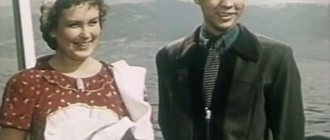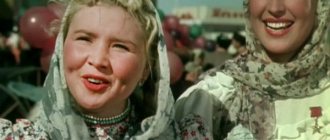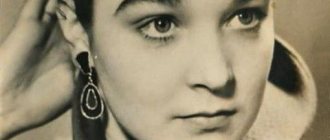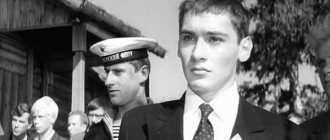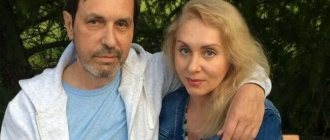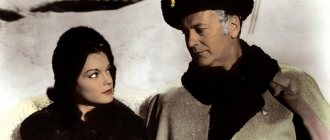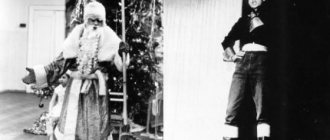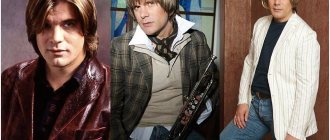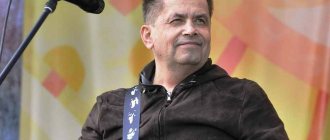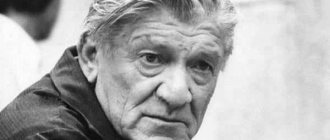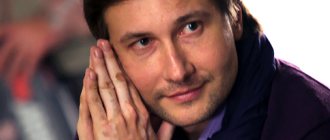The last Emperor of Russia, Nicholas II, died in June 1918. He, along with his wife, children and members of his retinue, were first arrested and then executed near Yekaterinburg. The remains were discovered only in 1979, and were recovered and examined in the 90s. Now they are in the Peter and Paul Cathedral, and July 7 is considered the day of remembrance of the innocent murdered.
The 23-year reign of the last Russian Emperor in history, Nicholas II, ended tragically. The abdication of the last Romanov from the throne and the subsequent execution of the entire royal family turned the history of the country in a completely different direction and split the state into two opposing camps. Throughout the 20th century, the 1917 revolution was covered only as a positive event. Today, many believe that the bloody overthrow of the tsarist regime and the destruction of the Romanovs was a cruel and destructive crime. The death of Nicholas II was the death of an entire empire on a historical and cultural scale.
Biography of Nicholas II
Nicholas II is the last Russian Tsar who abdicated the throne and was executed by the Bolsheviks, later canonized by the Russian Orthodox Church. His reign has been assessed in various ways, from harsh criticism and statements that he was a “bloody” and weak-willed monarch, responsible for the revolutionary disaster and the collapse of the empire, to praise of his human virtues and statements that he was an outstanding statesman and reformer.
In the photo: Nicholas II
During his reign, there was an unprecedented flourishing of the economy, agriculture, and industry. The country became the main exporter of agricultural products, coal mining and iron smelting increased fourfold, electricity generation increased 100 times, and the gold reserves of the state bank more than doubled. The Emperor was the founder of Russian aviation and the submarine fleet. By 1913, the empire entered the top five most developed countries in the world.
Childhood and adolescence
The future autocrat was born on May 18, 1868 at the country residence of Russian rulers in Tsarskoe Selo. He became the first-born of Alexander III and Maria Feodorovna among their five children and the heir to the crown.
Future autocrat Nicholas II in childhood
His main educator, according to the decision of his grandfather, Alexander II, became General Grigory Danilovich, who held this “position” from 1877 to 1891. Subsequently, he was blamed for the shortcomings of the complex character of the emperor.
Since 1877, the heir received home education according to a system that included general education subjects and lectures in higher sciences. Initially, he mastered the visual and musical arts, literature, historical processes and foreign languages, including English, Danish, German, and French. And from 1885 to 1890. studied military affairs, economics, and jurisprudence, which were important for royal activities. His mentors were prominent scientists - Vladimir Afanasyevich Obruchev, Nikolai Nikolaevich Beketov, Konstantin Petrovich Pobedonostsev, Mikhail Ivanovich Dragomirov, etc. Moreover, they were only obliged to present the material, but not to test the knowledge of the heir to the crown prince. However, he studied very diligently.
Nicholas II in his youth
In 1878, an English teacher, Mr. Karl Heath, appeared among the boy's mentors. Thanks to him, the teenager not only mastered the language perfectly, but also fell in love with sports. After the family moved to the Gatchina Palace in 1881, not without the participation of the Englishman, a training room with a horizontal bar and parallel bars was equipped in one of its halls. In addition, together with his brothers, Nikolai rode horses well, shot, fenced, and became well developed physically.
In 1884, the young man took the oath of service to the Motherland and began service, first in Preobrazhensky, and 2 years later in His Majesty’s Life Guards Hussar Regiment.
Nicholas II in his youth
In 1892, the young man earned the rank of colonel, and his father began to introduce him to the specifics of governing the country. The young man took part in the work of Parliament and the Cabinet of Ministers, visited different parts of the monarchy and abroad: Japan, China, India, Egypt, Austria-Hungary, Greece.
Nicholas II: the happy youth of the tragic emperor
On October 20, 1894, Emperor Alexander III died. His son, the 26-year-old heir to the throne, Nicholas II, ascended the throne. He was destined to become the last tsar in Russian history - Nicholas II.
Today we begin the story about his era and personality, around which, even a hundred years after the tragic death of the last emperor and his family, there are many different opinions and myths. Our first publication in this series is about the childhood and youth of Nicholas II, whose 150th birthday marks May 18.
Nicholas II was born on May 6 (18), 1868 in the family of the heir to the throne, the future Emperor Alexander III. On this day, cannons fired in celebration - Tsar Alexander II’s first grandson was born. He was named in honor of Alexander III's deceased brother Nicholas, who was heir to the throne before him, but died in 1865.
Niki (as he was called in the large Romanov family) together with his brothers and sisters was brought up in Spartan conditions. The father taught the heir to sleep on hard soldier's beds, do exercises and harden himself in the morning. In the upbringing and education of children, Alexander III was also strict and demanded from teachers: “They must pray well to God, study, play, and be naughty in moderation. Teach well, don’t let people down, ask to the fullest extent of the laws, don’t encourage laziness in particular. ... I repeat that I don’t need porcelain. I need normal Russian children. They'll fight, please. But the informer gets the first whip.” The heir to the throne received a good education in the gymnasium program, and later mastered a five-year course of higher legal and military education. Nikolai studied law, political economy, military science, fencing, drawing, music, mastered English, which he knew perfectly, French, and German. In addition, at this time he became addicted to reading. His circle of favorite, read and re-read authors included Pushkin, Lermontov, Gogol, Tolstoy, Dostoevsky, Chekhov.
Tragic accession to the throne
In 1894, at 2:15 a.m. in Livadia, Alexander III died of kidney disease, and an hour and a half later, in the Church of the Exaltation of the Cross, his son swore allegiance to the crown. The coronation ceremony - the assumption of power along with the corresponding attributes, including the crown, throne, scepter - took place in 1896 in the Kremlin.
Coronation of Nicholas II
It was overshadowed by the terrible events on the Khodynka field, where festivities were planned with the presentation of 400 thousand royal gifts - a mug with the monogram of the monarch and various delicacies. As a result, a million-strong crowd of people wishing to receive gifts formed on Khodynka. The result was a terrible stampede that claimed the lives of about one and a half thousand citizens.
The stampede on Khodynka claimed about one and a half thousand lives
Having learned about the tragedy, the sovereign did not cancel the festive events, in particular, the reception at the French embassy. And although he later visited victims in hospitals and financially supported the families of the victims, he still received the popular nickname “Bloody.”
Reign
In domestic politics, the young emperor maintained his father's commitment to traditional values and principles. In his first public speech in 1895 in the Winter Palace, he announced his intention to “protect the principles of autocracy.” According to a number of historians, this statement was negatively received by society. People doubted the possibility of democratic reforms, and this caused an increase in revolutionary activity.
Nicholas II remained committed to traditional values and principles
However, after his father’s counter-reforms, the last Russian Tsar began to maximally support decisions to improve the people’s life and strengthen the existing system.
Among the processes introduced under him were:
- population census;
- introduction of gold circulation of the ruble;
- universal primary education;
- industrialization;
- limitation of working hours;
- workers' insurance;
- improving soldiers' allowances;
- increasing military salaries and pensions;
- religious tolerance;
- agrarian reform;
- large-scale road construction.
Rare newsreel with Emperor Nicholas II in color Due to growing popular unrest and wars, the reign of the emperor took place in a very difficult situation. Following the demands of the time, he granted his subjects freedom of speech, assembly, and press. The State Duma was created in the country, which performed the functions of the highest legislative body. However, with the outbreak of the First World War in 1914, internal problems worsened even more, and mass protests against the authorities began.
Emperor Nicholas II on maneuvers (1913)
The authority of the head of state was also negatively affected by military failures and the emergence of rumors about the interference in the governance of the country by various fortune tellers and other controversial personalities, especially the main “adviser to the Tsar” Grigory Rasputin, who was considered by most citizens to be an adventurer and rogue. The mystery of Emperor Nicholas II's abdication of the throne In February 1917, spontaneous riots began in the capital. The monarch intended to stop them by force. However, an atmosphere of conspiracy reigned at Headquarters. Only two generals expressed their readiness to support the emperor and send troops to pacify the rebels; the rest were in favor of his abdication. As a result, in early March in Pskov, Nicholas II made the difficult decision to abdicate in favor of his brother Mikhail. However, after the Duma refused to guarantee his personal safety if he accepted the crown, he officially renounced the throne, thereby putting an end to the thousand-year Russian monarchy and the 300-year reign of the Romanov dynasty.
The myth of Emperor Nicholas II
The campaign to exalt Nicholas II began under M. Gorbachev, and they did it with such stretches and exaggerations that it is simply surprising.
Nicholas was called a highly educated man of the highest culture, a great military strategist. At the same time, a new campaign of “de-Stalinization” began; N. Khrushchev was the first to start it, but L. Brezhnev curtailed it. They were opposed to each other - the half-educated Stalin and the educated Nikolai; military strategist emperor and tyrant who “filled up the corpses of soldiers” with the Germans; a wonderful family man, Romanov, and the tragedies in Stalin’s family - one son died in captivity, the second became an alcoholic, and either “killed” his wife or “drove him to suicide.” Under the emperor, Russia experienced a “silver age” of culture, Stalin “repressed” scientists and cultural figures, the intelligentsia. After Gorbachev, B. Yeltsin continued this campaign, arriving at the funeral of the Romanov family (or maybe not theirs, some experts doubted the identity of the remains), and said: “We are all to blame. We need to repent..." True, what the Russian people and other indigenous peoples who went through the “meat grinder” of the revolution and the Civil War should repent of is not clear. The Revolution and the Civil Revolution were not organized by ordinary people, but by completely respectable, wealthy people. Terror - red, white, green, foreign - against whom was it waged?! Against the people - what should he repent of? What, they didn’t cut enough?! Did the people force the emperor to enter the First World War, when the smartest people of the empire (Stolypin, Durnovo, etc.) said that this war would lead the empire to disaster. The representative of the people, Rasputin, was also against the war, which is why the Freemasons killed him.
Are the people to blame for killing the Romanov family? There are very specific people behind the murder - Trotsky, Sverdlov, and behind them are the interests of the “world behind the scenes”; many facts about this have already surfaced. Maybe London, Paris, Washington should repent?! In the organization of the revolution in Russia, the outbreak and support of the Civil War, mass terror, including the murder of the Romanovs.
What is known about Nicholas II
He was born on May 19, 1868, the first-born in the family of Emperor Alexander III, and therefore was the heir to the throne. But it was believed that this would not happen soon - his father was a real hero, he bent horseshoes and lifted enormous weights. The first shock for Nicholas was the murder of Emperor Alexander II, his grandfather; a bomb exploded, his legs were torn off, his body and face were disfigured. The emperor was dying in the Winter Palace, 12-year-old Nicholas was present at his agony. Alexander, Nicholas's father, did not think that he would have to become emperor so soon and under such sad circumstances. He was not too concerned about passing on managerial skills to his heir; he believed that he would be prepared by the age of 30.
The mentor of the future emperor was the chief prosecutor of the Holy Synod of the Victorious, and he also raised his father. He was a conservative man, even for his time, the basis of his worldview were two principles: autocracy and Orthodoxy, he considered everything else sedition. For him, reforms were a “bazaar of projects”, the constitution was “the most terrible ulcer”, newspapers were a “kingdom of lies”, suffrage was a “mistake”, parliament was an institution for satisfying personal ambitions and vanity. In principle, one can largely agree with him if one looks at these phenomena in modern Russia and in the world.
By the age of 22, the heir to the throne was an excellent horseman, dancer, accurate shooter, and spoke English, French and German better than Russian. He kept a diary, in May 1890 he wrote: “Today I finally and forever stopped my studies,” that is, he finished his studies at the age of 22. Next, one must think, he had to delve into the intricacies of a top manager, draw up projects to increase the well-being of the people, strengthen the position of the empire, study and study.
But, judging by the documents, these problems did not particularly bother him - he was attracted by an idle lifestyle: balls, revelries, various kinds of social entertainment - opera, theater, ballet, parties, an ice skating rink in winter. From the age of 19 he had a “duty” - the head of a squadron of Cossacks: Cossacks galloped past him at a trot, after the performance there was a drinking party. On June 25, 1887, he wrote: “An appropriate amount of moisture was taken, tasted six varieties of port and got a little drunk, lay on the lawn and drank, was carried home by the officers.” When, with such an active life, do you learn to govern the state?! Based on Nikolai’s military knowledge, he could be appointed a junior officer, not higher, and that was due to his education, not military experience.
Where the creators of the myth about the “commanderial talents” of the last emperor got this from is not clear. The same Stalin was a “crisis manager” during the Civil War, acting very faithfully in threatened areas (near Tsaritsyn, Perm, Petrograd), and proved himself to be an excellent organizer. That is, long before World War II I gained unique military experience.
Another hobby of young Nikolai was ballerinas, he especially liked Matilda Kshesinskaya. Initially, his parents turned a blind eye to this hobby, saying it would pass. But it didn’t go away, rumors appeared that he even wanted to marry her. Then he was sent on a trip around the world, and not for the purpose of gaining additional knowledge about the world and countries. For this purpose, appropriate people would be included in the expedition, but for purely entertainment purposes. His companions were his drinking buddies from the Preobrazhensky Regiment, the hussars, and his brother Georgy (he was later imprisoned due to illness). Naturally, an atmosphere of fun, idleness and drunkenness established itself on the battleship “Memory of Azov”. The trip is full of entertainment - strange countries, hunting for exotic animals, however, in Japan, Nicolas was almost killed by a samurai, he rushed at him with a sword. Nicholas received a severe head injury, from then on he began to suffer from headaches and a constant pain syndrome appeared, which, naturally, did not have the best effect on the future emperor.
The trip did not change the heir for the better; when he returned, he returned to his usual life: drinking, social life, and resumed dating with Matilda. As a result, until the age of 26, Nikolai led the life of an ordinary rich rake: he had fun, drank, looked after ballerinas. And these are the years when his still “fresh mind” could develop and absorb new knowledge. He could participate in various projects to develop the empire, not formally, but in reality. The thought that we needed to study did not arise, because my father was only 49 years old in 1894, he had to rule for another 20-25 years. But he got sick; In order to strengthen the position of the future emperor, to “settle” him, they decided to arrange a marriage.
The marriage with Elena French (daughter of the Count of Paris) did not work out, she did not want to convert to Orthodoxy, and Nikolai was against it. For the same reasons, his marriage with Margarita of Prussia did not work out. As a result, they settled on the candidacy of Princess Alice of Hesse-Darmstadt, they even sympathized with each other. Although Alexander and his wife initially did not like her, the emperor's illness changed the situation. Alexander managed to bless the couple and died on October 20, 1894. So Princess Alice from the unknown house of Darmstadt became the empress of one of the most powerful empires on the planet. Naturally, she also did not have any experience in managing a huge empire, she could not help Nikolai in this, and besides, because of her lust for power, she quarreled with Nikolai’s mother.
Father’s brothers also could not help in modernizing the empire: Grand Duke Vladimir Alexandrovich, president of the Academy of Arts, commander of the guard, spent most of his time in entertainment, hunting, drinking, and “patronized” ballerinas. Grand Duke Alexei Alexandrovich “managed” maritime affairs, simultaneously stealing public funds, spent a lot of time in Paris, spending huge sums on mistresses. Grand Duke Sergei Alexandrovich was a conservative; largely because of his negligence, the Khodynsk tragedy occurred, after which he was nicknamed “Prince Khodynsky.” Prince Pavel Alexandrovich was only 8 years older than Nicholas, he was close to him, but spent most of his time abroad. That is, Nicholas II’s support was fragile. In addition, each Grand Duke had his own retinue, his own entourage, whose maintenance was very expensive for the people.
Undoubtedly, Nicholas had a hard lot - the empire had a lot of problems: peasant (land) problems, the problem of further industrialization, national issues, low literacy levels, security problems and so on, without solving which it was impossible to go further. But he could, “rolling up his sleeves”, abandoning entertainment, “plow”, like the same Peter the Great, could “break a lot of wood” in the process. The goal would justify the difficulties and losses, could preserve the Russian Empire, transforming it into an industrial power, introduce universal primary, then secondary education, like the Bolsheviks. He had unlimited power, could punish and pardon, most importantly, the potential was gigantic - Russia had not yet gone through the Russian-Japanese, the first revolution of 1905-1907, and had not entered the First World War. It was much more difficult for Stalin in the 30s - he did not have absolute power, the country was destroyed, even what was in 1913 was lost, huge territories were lost, there was no huge gold reserve of the empire, several tens of millions died or remained in other states people, we had to re-create the administrative corps and restore scientific and technical potential.
Emperor Nicholas II did not use the enormous potential of the empire, ruined it and his family...
Sources
: Bokhanov A.N. Nicholas II. M., 2008. Platonov O. A. The Crown of Thorns of Russia. Nicholas II in secret correspondence. M., 1996. Firsov S. Nikolai II. M., 2010. https://www.avit-centre.spb.ru/exb/06/kor/k2.htm https://www.booksite.ru/fulltext/esy/nre/por/taz/hy/ 17.htm https://militera.lib.ru/db/nikolay-2/index.html https://www.rus-sky.com/history/library/diaris/1894.htm
The Vertu phone is a standard of quality, exquisite taste, harmony and perfection; it is a timeless masterpiece. You can buy Vertu in the online store “Vertu Online”: sales, technical support, service, repair.
Personal life of Nicholas II
The first love of the future emperor was ballet dancer Matilda Kshesinskaya. He had an intimate relationship with her with the approval of his parents, concerned about his son’s indifference to the opposite sex, for two years, starting in 1892. However, the connection with the ballerina, the path and favorite of St. Petersburg, for obvious reasons could not result in a legal marriage. Alexei Uchitel’s feature film “Matilda” is dedicated to this page in the life of the emperor (although viewers agree that there is more fiction in this film than historical accuracy).
Nicholas II and Matilda Kshesinskaya
In April 1894, in the German city of Coburg, the engagement of the 26-year-old Tsarevich to the 22-year-old Princess Alice of Darmstadt of Hesse, granddaughter of Queen Victoria of England, took place. He later described the event as "wonderful and unforgettable." Their wedding took place in November in the church of the Winter Palace.
Nicholas II and Alexandra Feodorovna (born Alice Darmstadt of Hesse)
The couple had 5 children: Tatyana, Olga, Maria, Anastasia and Alexey.
Royal family
Nikolai kept a diary from the age of 9, was interested in photography, cars, loved hunting, cinema, reading books, and smoking cigarettes.
Childhood and youth of Nicholas II
Nicholas II was born on May 6, 1868 in Tsarskoe Selo. At first he received a home education, then, in the period 1885-1890, he mastered a course compiled according to a special program and taught by the Chief Prosecutor of the Synod K.P. Pobedonostsev, Minister of Foreign Affairs N.K. Girs, Minister of Finance N.Kh. Bunge, generals N.N. Obruchev and M.I. Dragomirov, historian V.O. Klyuchevsky, composer and military engineer Ts.A. Cui. How the heir understood the material remained a mystery to the teachers, since it was forbidden to ask him, he himself did not ask any questions. Education was supplemented by several camp military training sessions. Count S.Yu. Witte wrote about Nikolai: “...in our time, he has the secondary education of a guards colonel from a good family.”
| Grand Duke Nikolai Alexandrovich. 1872 | Grand Duke Nikolai Alexandrovich. 1870s | Tsarevich Nikolai Alexandrovich. 1886 |
After the Tsarevich reached adulthood, his father decided that it would be useful for him to travel around the world. Moreover, Nikolai started an affair with a young lady of an undesirable nationality, in the eyes of his crowned parents, and this irritated them very much. The trip was prepared quite carefully: instructions were sent from St. Petersburg to Russian envoys abroad and Russian governors to the places along Nikolai Alexandrovich’s route. They set out in detail what the heir was recommended to visit and what he did not need to visit. They even sent mock-ups of speeches that should be addressed to the Tsarevich during official receptions. So Nicholas had to complete his education in the field of diplomacy.
His sickly brother George went with the heir: the imperial couple hoped that sea water, sun and salty sea air would heal him. So that the royal children would not be bored during their trip abroad, they had with them several young people from noble families - retinue general Prince V.A. Baryatinsky, horse guard Prince N.D. Obolensky, cavalry guard Prince V.S. Kochubey, hussar E.N. Volkov, official of the Department of Foreign Confessions, Prince E.E. Ukhtomsky.
On Tuesday, October 23, 1890, the entire company departed. In Athens, she was joined by the heir to the Greek throne, Prince George, whom the grand dukes called Giorgi. At first, the journey was pleasant and easy: we sailed through the Suez Canal, admired the Pyramid of Cheops and other sights.
On board the ship, the young people were also not bored, paying tribute to the guards “traditions”, the basis of which was alcohol and other youthful amusements. But during one of them, Grand Duke Georgy Alexandrovich fell and bruised his chest. As a result, the process in the lungs worsened, and the patient had to be urgently sent from the nearest port to Russia, but still the Grand Duke died of consumption. In April 1891, travelers arrived in the old Japanese capital of Kyoto, and from there to the small town of Otsu. Here the heir to the throne almost lost his life. Some policeman ran up to him and brought a saber down on his head - the blow fell on the right side of the skull, above the ear. The Japanese prepared for further actions, but Nikolai Alexandrovich jumped out of the rickshaw carriage in which he was riding around the city and ran. Those around him scattered, not even trying to protect the royal heir, but the situation was saved by the Greek prince Georgi. He knocked the brutal Japanese off his feet with a cane and helped the police who arrived at the scene to tie him up. The journey had to end. Returning through Siberia to St. Petersburg, Nikolai visited Tobolsk, which he really liked. The heir could not even imagine at that time that this city would become the place of his exile 27 years later.
Tsarevich Nikolai Alexandrovich with his retinue at the Egyptian pyramids. 1891
Tsarevich Nikolai Alexandrovich (fifth from left) during a trip around the world. 1891
Yacht "Memory of Azov". 1890. On it is Grand Duke Nikolai Alexandrovich
traveled around the world.
In 1890, the ship “Memory of Azov” was equipped, on board of which the future emperor was to sail through the Mediterranean Sea and pass through the Suez Canal to reach India and Japan. The return to the capital was supposed to be carried out by land, through Siberia.
Members of the European House of Coburg. Coburg. 1894
Grand Duke Tsarevich Nikolai Alexandrovich. Livadia. 1890s
Back
Further
Death of Nicholas II
After the abdication of the autocrat, power in Russia passed to the Provisional Government. According to his decision, on March 8, 1917, upon arrival in Tsarskoe Selo, Nikolai Alexandrovich along with his household were arrested. On August 1, the royal family was exiled to Tobolsk, ostensibly for security reasons - the Germans were stubbornly advancing towards the Russian capital, where anarchy reigned.
In April 1918, the royal family was exiled to Yekaterinburg.
In April 1918, the former monarch and his wife, their children and several loyal servants were sent to Yekaterinburg by order of the Bolshevik government under the leadership of Vladimir Lenin. With the sanction of the leader of the revolution (although this fact is disputed by a number of historians), on the night of July 17, in the house where they were kept in captivity, all the prisoners were shot without a court verdict. Murder of the royal family In 1981, the family of the last monarch was canonized by the Russian Orthodox Church abroad and in 2000 in the Russian Federation.
